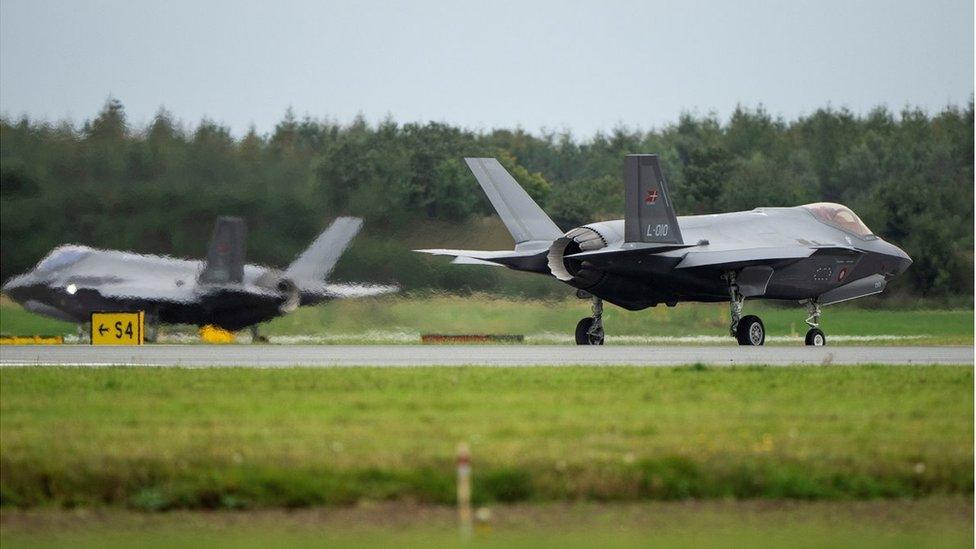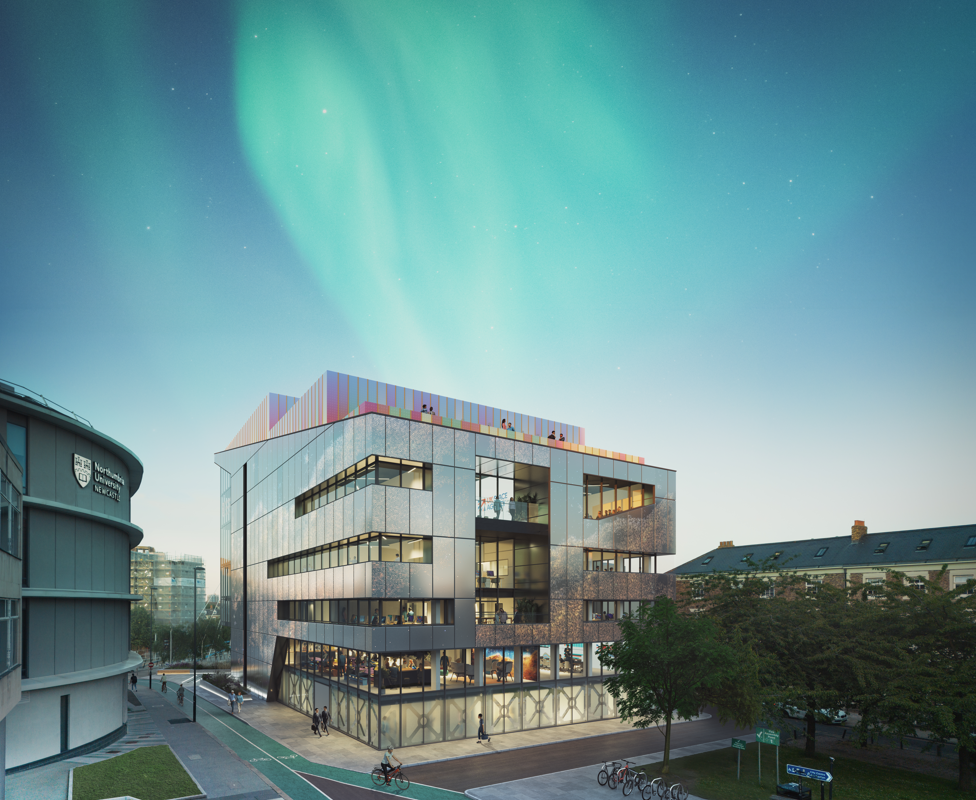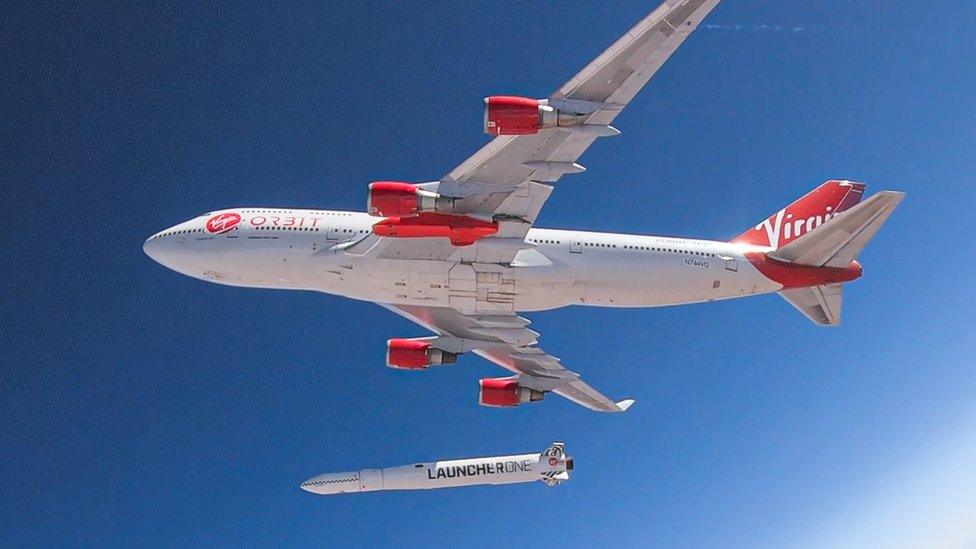Northumbria University announces 'world-leading' space centre
- Published

Northumbria University's Wynne Jones building will be remodelled into the centre
A university has secured £50m to build a "world-leading" space skills centre.
The UK Space Agency gave Newcastle's Northumbria University £10m to create a hub for satellite relays and weather.
Aerospace company Lockheed Martin, which provides military aircraft to Israel, external, provided £15m to the project.
The university defended accepting the money, saying it remained "committed to ethical research and investment", adding the project would be a "game-changer" for the UK space economy.
The university also said it would match-fund the UK Space Agency and Lockheed Martin money with a further £25m, totalling £50m for the project.
On its website, Lockheed Martin said it was "proud of the significant role it has fulfilled in the security of the State of Israel".
"We also believe in strengthening the industries and individuals that will fuel future growth for Israel," it continued.

Lockheed Martin also makes F-35 fighter jets for the Danish government
Lockheed Martin said it had helped strengthen the Israel Defense Forces (IDF) ground forces by providing radars, rockets and guidance systems.
IDF warplanes have carried out strikes across Gaza, where at least 13,300 people have been killed, according to the Hamas-run health ministry.
The Israeli action came after Hamas gunmen launched an unprecedented assault from the Gaza Strip on 7 October, killing about 1,200 people and taking about 240 hostages.
The BBC asked Northumbria University about its affiliations with Lockheed Martin and a spokeswoman said: "The partnership is with the UK government via the UK Space Agency (UKSA) and Lockheed Martin's UK Space and Satellite division.
"Northumbria remains committed to ethical research and investment, and all decisions on business partnerships must meet the criteria of creating and applying knowledge to benefit communities and the economy and to transforming lives."
When asked how this tallied with taking investment from a company which has contributed to what the UN describes, external as a "war and health crisis", the university spokeswoman said it adhered "to the latest policy guidance on research collaborations with external organisations".
"The university's research is underpinned by robust processes and policies, alongside statutory and regulatory requirements, to ensure the highest standards of rigour and integrity," she added.

NESST is expected to inject £260m into the North East economy over the next 30 years
The North East Space Skills and Technology Centre (NESST) is expected to create over 350 jobs and is set to open in 2025.
Lockheed Martin has previously invested £630,000 into collaborations with the university on other projects.
NESST is to be built in the centre of Northumbria University's Newcastle city campus, combining "industry and academia to collaborate on internationally significant space research and technological developments".
'Supercharge'
The university said NESST would "put the UK at the forefront of research and innovation in areas including optical satellite communications, space weather and space-based energy".
Prof John Woodward, faculty pro-vice chancellor for engineering and environment, said the building would "supercharge our opportunities".
Early research programmes in NESST will focus on satellite laser communications systems, space energy and manufacturing small satellites for launch into orbit.
Prof Woodward said: "We'll also have a mission operation centre, we can watch the launch of satellites into space and bring back the data from those satellites and analyse the data in the building.
"We're starting to work with local colleges to produce the pipeline of talent into these degree programmes, and we hope also to run PhD programmes, real research opportunities for people."

Follow BBC North East & Cumbria on X (formerly Twitter), external, Facebook, external and Instagram, external. Send your story ideas to northeastandcumbria@bbc.co.uk, external.
- Published6 January 2023
